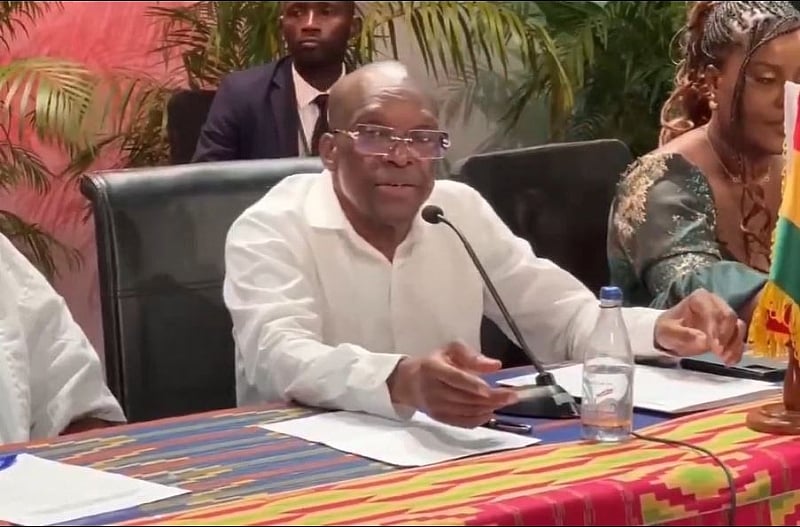The Speaker of Parliament, Alban Bagbin, has vehemently reiterated his commitment to the passage of the controversial Human Sexual Rights and Family Values Bill, commonly referred to as the Anti-LGBTQ Bill. This renewed pledge, made during an address to traditional leaders and National Democratic Congress (NDC) supporters, underscores Bagbin’s unwavering stance on what he perceives as the protection of Ghanaian cultural and moral values. His declaration of willingness to “lose his life for this cause” throws into sharp relief the profound significance he attaches to this legislation and his determination to see it enacted into law. The bill’s primary objective, as championed by its proponents, is to criminalize LGBTQ+ activities and affirm traditional Ghanaian societal norms. Bagbin’s fervent advocacy for the bill has reignited the national debate surrounding LGBTQ+ rights in Ghana, bringing the issue back to the forefront of public discourse.
Bagbin’s strategy for achieving the bill’s passage involves formally engaging the Minister for Justice and Attorney General to seek guidance on the legal procedures necessary to reintroduce and advance the legislation. He cited the previous Parliament’s passage of a similar bill, which ultimately failed to become law due to the former president’s refusal to grant assent. Bagbin criticized this decision, asserting that Parliament, not the president, holds the ultimate authority in lawmaking. He views the former president’s action as unconstitutional and believes it contributed to his subsequent electoral defeat, interpreting it as a form of public rebuke for obstructing the bill’s enactment. This interpretation highlights the political dimensions of the issue and the potential electoral ramifications for those perceived as either supporting or opposing the legislation.
With a clear roadmap in mind, Bagbin aims to expedite the bill’s passage within the current year. He plans to formally request the Attorney General’s input before resubmitting the bill to the current president for assent. His confidence in securing presidential approval this time around reflects his belief that the political landscape has shifted in favor of the bill’s passage. This confidence also underscores the perceived alignment between the current administration and the bill’s objectives, suggesting a potential departure from the previous administration’s stance. Bagbin’s repeated assertion that the bill addresses “ungodly” practices reflects the deep-seated moral convictions underpinning his advocacy.
The Anti-LGBTQ Bill has been a lightning rod for controversy in Ghana, sparking heated debates across various segments of society. Supporters of the bill argue that it is essential for upholding traditional Ghanaian values and protecting the moral fabric of the nation. They view LGBTQ+ activities as a threat to these established norms and believe that the legislation is necessary to preserve cultural integrity. This perspective often draws on religious and cultural beliefs, emphasizing the perceived incompatibility of LGBTQ+ identities with traditional Ghanaian society.
On the other hand, critics of the bill express grave concerns about its potential human rights implications. They argue that it could lead to discrimination, persecution, and violence against members of the LGBTQ+ community. Furthermore, they raise concerns about the bill’s potential to damage Ghana’s international reputation and its standing within the global human rights community. These concerns highlight the tension between protecting cultural values and upholding universal human rights principles, a central dilemma in the ongoing debate.
The international community, including human rights organizations and several Western governments, has also expressed reservations about the bill’s potential impact on human rights in Ghana. This external pressure adds another layer of complexity to the issue, raising questions about the balance between national sovereignty and international norms. The bill’s potential to strain Ghana’s diplomatic relations with certain countries further underscores the high stakes involved in its passage. Bagbin’s renewed commitment to the bill has thus set the stage for a renewed and potentially intensified national debate with wide-ranging implications for Ghanaian society and its relationship with the international community. The unfolding legislative process will undoubtedly be closely watched by stakeholders on both sides of the issue, both within Ghana and internationally.














